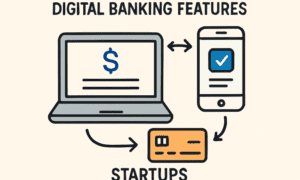Are you ready to unlock the secret to obtaining a credit card without breaking a sweat? Look no further! Whether you’re a seasoned pro or new to the world of credit, our blog post is here to guide you through the labyrinth of applications and help you crack the code on successfully applying for a credit card. From insider tips to expert insights, we’ve got all the tools you need to navigate this financial maze with confidence.
Understanding credit cards
Credit cards have become an essential tool in today’s society, allowing individuals to make purchases and manage their finances with ease. However, many people are still unsure about how credit cards work and the benefits they offer. In this section, we will break down the basics of credit cards and help you understand how they function.
How do credit cards work?
When you apply for a credit card, the issuer will review your financial history and determine your creditworthiness. They will look at factors such as your income, debt-to-income ratio, credit score, and payment history to assess your ability to handle debt responsibly.
If approved, the issuer will assign you a credit limit—the maximum amount of money you can borrow using the card. You can use this limit to make purchases or withdraw cash advances from ATMs (although we recommend avoiding this option due to high interest rates).
The Importance of Having a Credit Card
Credit cards have become an essential part of our financial lives. They offer a convenient and secure way to make purchases, access credit, and build a credit history. In fact, having a credit card is considered a fundamental step towards achieving financial stability.
One of the main reasons why having a credit card is important is that it allows you to build and maintain good credit. Your credit score is one of the most crucial factors that lenders consider when determining your eligibility for loans or other forms of credit. A higher credit score reflects responsible borrowing habits, making you more trustworthy in the eyes of lenders.
A credit card also provides you with emergency funds when needed. Life can be unpredictable, and unexpected expenses can arise at any time. Having a credit card as a backup ensures that you have access to funds in case of emergencies such as medical bills or car repairs.
Moreover, using a credit card responsibly can help you manage your budget and expenses effectively. With features like online banking and mobile apps, it becomes easier to track your spending and stay on top of your finances. You can also set up automatic payments for recurring bills, which can help avoid late fees and improve your credit score.
Factors to Consider When Choosing a Credit Card
When it comes to applying for a credit card, there are several factors that you need to consider in order to choose the right one for you. With so many options available on the market, it can be overwhelming and confusing. However, by understanding these factors and evaluating your own financial needs and habits, you can make an informed decision that suits your lifestyle and goals.
1. Interest Rates: The interest rate, or annual percentage rate (APR), is the cost of borrowing money on your credit card. It is important to choose a credit card with a low interest rate, as this will directly affect how much you pay back on top of your purchases if you carry a balance from month to month. A lower interest rate will save you money in the long run.
2. Rewards Program: Many credit cards offer rewards programs such as cashback, travel points, or discounts on certain purchases. Before choosing a credit card based on its rewards program, consider which type of rewards would benefit you the most based on your spending habits and lifestyle.
3. Fees: Credit cards may come with various fees, such as annual fees, balance transfer fees, foreign transaction fees, late payment fees, and more. These fees can add up quickly and significantly impact your overall spending if they are not managed properly. Make sure to read through all fee disclosures before applying for a credit card.
4. Credit Limit: This refers to the maximum amount of money that can be charged on your credit card at any given time. The higher the limit, the more you can spend on your card. However, it is important to consider your own spending habits and make sure you can manage and pay off the balance within the credit limit to avoid overspending or accruing high interest charges.
5. Credit Score: Your credit score plays a vital role in determining your eligibility for a credit card and the interest rate you will receive. A higher credit score can qualify you for better interest rates and rewards programs. If you have a lower credit score, look for cards that are specifically designed for building or rebuilding credit.
6. Payment Options: It is important to understand how payments are accepted by the credit card company. Some may only accept online payments, while others may offer options such as automatic payments or phone payments. Choose a payment option that works best for you and fits into your monthly budget and schedule.
7. Customer Service: Before choosing a credit card, research the customer service reputation of the issuing bank or company. You want to make sure that if any issues arise with your account, they will be handled promptly and efficiently.
How to Prepare for the Application Process
The application process for a credit card can seem overwhelming and confusing, but with the right preparation, it can be a smooth and successful experience. In this section, we will discuss the steps you should take to prepare for the credit card application process.
1. Know Your Credit Score
Before applying for a credit card, it is important to know your credit score. This number represents your overall creditworthiness and is a major factor in whether or not you will be approved for a credit card. You can check your credit score for free through various online services such as Credit Karma or by requesting a free credit report from one of the three major credit bureaus (Experian, Equifax, or TransUnion). Knowing your score will give you an idea of what types of cards you may qualify for and help you set realistic expectations.
2. Research different credit cards.
There are numerous types of credit cards available with different features and benefits. Before applying, it is important to research and compare different options to find the best fit for your needs. Consider factors such as interest rates, annual fees, rewards programs, and any other features that are important to you.
3. Understand your spending habits.
When choosing a credit card, it is important to understand your spending habits. Are you someone who pays off their balance in full each month? Or do you tend to carry a balance? This information will help guide you towards a suitable card with favorable interest rates and fees.
4. Gather the necessary documents.
To complete a credit card application, you will need to provide personal information such as your name, address, social security number, and income. It is important to have all of this information readily available before starting the application process.
5. Check for pre-approval offers.
Some credit card companies offer pre-approval offers that are personalized based on your credit score and spending habits. These offers can make the application process easier and increase your chances of being approved. You can check for pre-approval offers on a credit card company’s website or through third-party websites.
6. Consider Your Current Credit Card Accounts
If you already have one or more credit cards, consider how adding a new card will impact your overall credit utilization and budget. It may be beneficial to consolidate or close some accounts before applying for a new card.
7. Review your credit report.
Before submitting an application, it is important to review your credit report for any errors or discrepancies. If you find any inaccuracies, dispute them with the credit bureau before applying for a new credit card.
8. Read the Terms and Conditions.
It is important to read and understand the terms and conditions of any credit card you are considering. This document outlines important information such as interest rates, fees, reward programs, and other policies that may affect your decision to apply.
Conclusion
By following these steps and doing your research, you can prepare for the credit card application process and increase your chances of being approved for a card that best fits your needs. Remember to always use credit responsibly and make timely payments to maintain a good credit score.



































